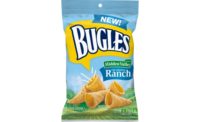Hidden opportunities in sustainable snacks

Sustainability—being environmentally friendly and not depleting natural resources—has continued to gain ground across nearly every industry as consumers embrace this notion in both their attitudes and actions. Making environmentally friendly choices spans a wide range of purchase decisions, including foods and beverages. As consumers strengthen these commitments, companies realize they must invest in sustainability as an integral focus—not just a desired activity, but as a necessary business strategy. The food and beverage industry represents one key sector where sustainability issues can have unmistakable impact.
Most people enjoy snacking as a simple pleasure, but how many of us consider exactly how sustainable the snacks we consume are? That is, how does growing the ingredients, manufacturing and packaging of these products affect the environment and the people involved in the processes? There are a growing number of brands who are indeed considering these issues, and they are offering choices which are not only tasty, but often healthy and environmentally friendly, as well.
For example, East Bali Cashews is an ethically focused company founded by an American entrepreneur which has created over 350 jobs in some of the most-impoverished regions of Bali. Not only do they use sustainable farming practices, but over 90 percent of the workforce is made up of women who previously had no employment opportunities.
CLIF Bar, a well-known energy and snack bar brand, offers vegan and predominantly organic products that are manufactured utilizing fair labor practices and a carbon-neutral status. The company is also working toward an impressive goal of zero waste.
NMI’s Sustainability Segmentation Model, first identified in 2002 and used globally by many leading companies, provides a wealth of data regarding consumers’ health and sustainability related attitudes and behaviors. This segmentation has been used to more fully understand this dynamic marketplace, and understand the contribution of each segment to sales and frequency of use, as well as other market and brand dynamics.
The chart below depicts this trend, as attributes such as non-GMO, organic, Fair Trade and sustainable agriculture are growing in importance, along with several attributes addressing packaging materials.
These attributes can provide key differentiators for a brand looking to attract snack and bakery consumers with a keen green focus. Consumers increasingly demand greater value from every product and service they buy. Thus, broader food functionality, ingredient integrity (organic, sustainable, fair trade, etc.), cause marketing and a sustainable supply chain represent a few examples of potential value-added benefits.
And while all these choices are important from a social and ethical perspective, they can also have the added benefit of being good for business. Nearly 4 in 10 people express a willingness to pay a 10 percent premium for foods and beverages that are certified as either organic or environmentally friendly; LOHAS consumers—a group of sustainability thought and action leaders as identified by NMI—are nearly twice as likely to do so.
In the end, most consumers realize that a healthy body and a healthy environment go hand-in-hand. Snack manufacturers should continue to take steps to integrate sustainable practices in their products and offer choices that appeal to consumers’ desire for both personal and broader planetary health.
Looking for a reprint of this article?
From high-res PDFs to custom plaques, order your copy today!





